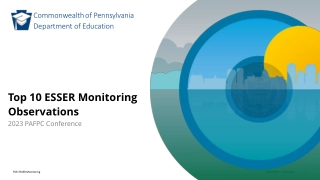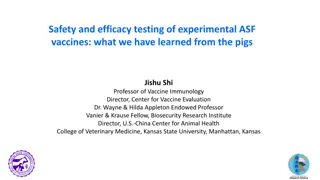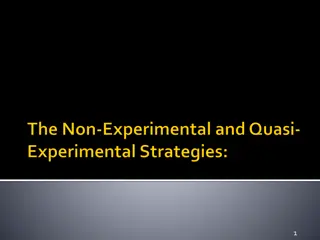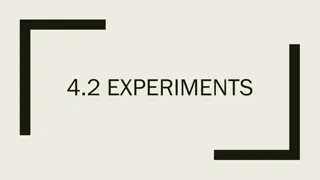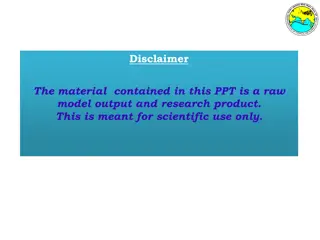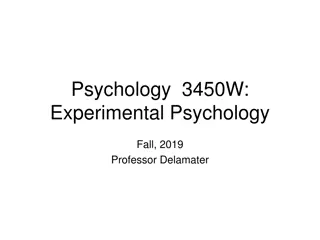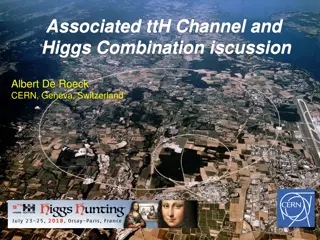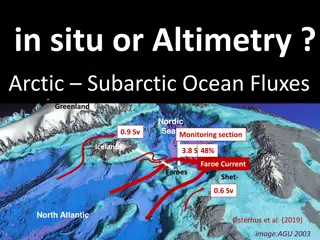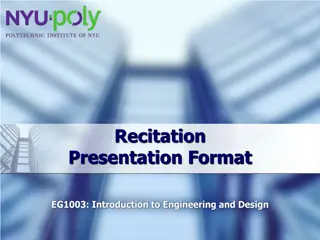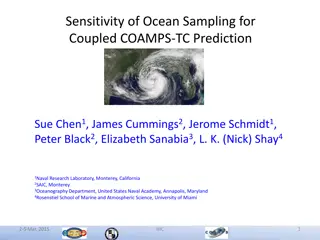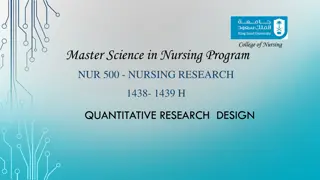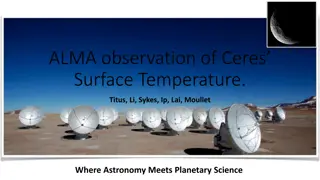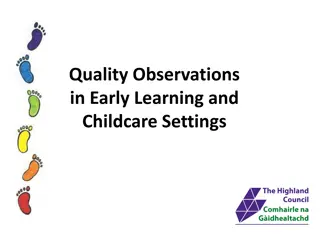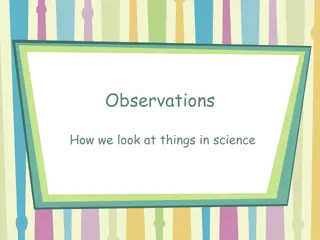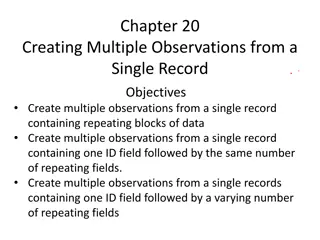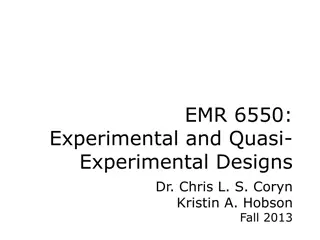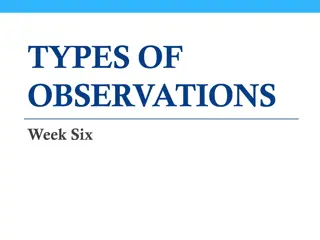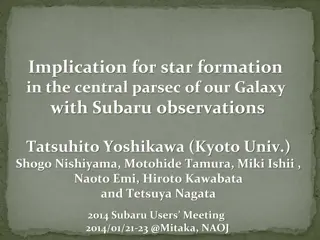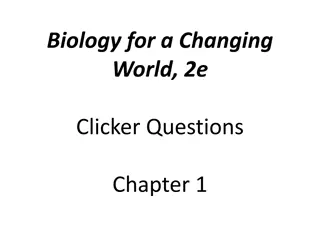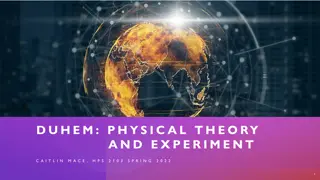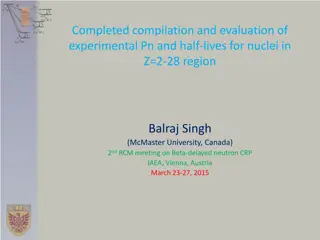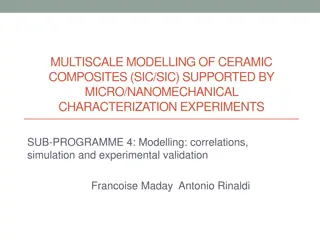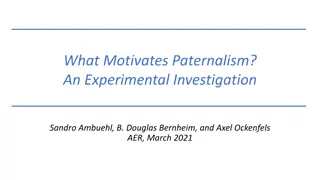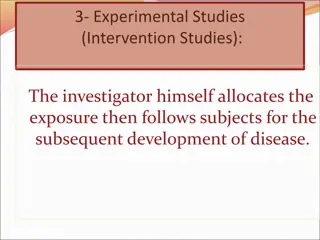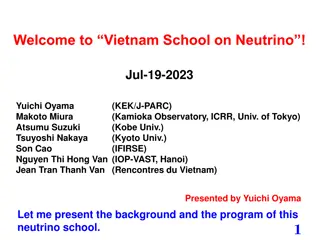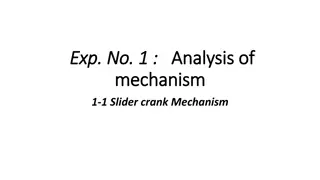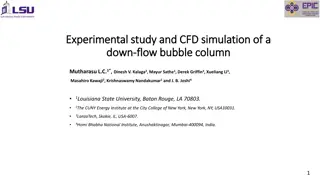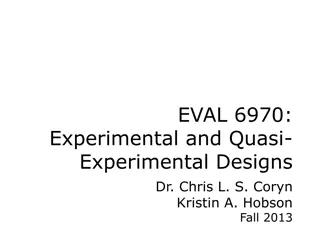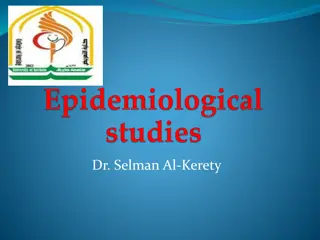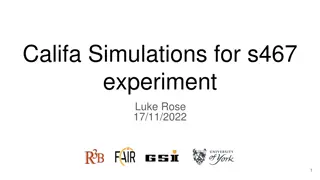Status of Activities Supporting the Space Weather Observations (SWO) Office
The status of activities supporting the Space Weather Observations (SWO) office, including implementation aspects and programs. It also emphasizes the importance of space weather information in various industry sectors and the need for planning follow-on missions for continued observations.
7 views • 26 slides
Understanding ESSER Monitoring Observations in Pennsylvania Education
Explore the top 10 ESSER monitoring observations from the Commonwealth of Pennsylvania Department of Education. Learn about the structure, content, facilitators, and key areas of review involved in assessing educational programs. Gain insight into how observations play a crucial role in ensuring com
1 views • 42 slides
Introduction to Experimental Economics by John Hey: A Comprehensive Overview
Explore the interconnected realms of Experimental Economics and Behavioral Economics through the insightful lectures of John Hey, an Emeritus Professor at the University of York. Discover the methodology of testing economic theories for validity and the practical applications of experimental economi
1 views • 58 slides
Evaluation of SPLASH and HRRR Soil Moisture Comparison
This study compares soil moisture data between the HRRR model and SPLASH observations during the 2022 warm season. It explores differences in soil moisture levels at various depths, evaluates responses to precipitation events, and drydown periods. The research focuses on analyzed data from HRRR Mode
3 views • 12 slides
Insights on Experimental ASF Vaccines in Pig Studies
The research conducted by Prof. Jishu Shi and his team at Kansas State University delves into the safety and efficacy testing of experimental African Swine Fever (ASF) vaccines using pigs as the model. Various vaccines, including DNA vaccines and live attenuated viruses, were tested against differen
4 views • 13 slides
Understanding Nonexperimental and Quasi-experimental Studies
Nonexperimental and quasi-experimental studies resemble experiments but lack random assignment, making them valuable for group comparisons without establishing causation. This type of research design looks at differences between groups that already exist, focusing on group differences rather than ca
1 views • 35 slides
Understanding Experiments in Research: Observation vs. Experimentation
Observation and experiments are two crucial methods in research. An observational study involves observing and measuring variables without influencing responses, while an experiment deliberately applies treatments to measure responses. Confounding variables can affect the results, and factors like e
0 views • 13 slides
Experimental Lightning Flash Prediction and Verification Study
This presentation contains real-time lightning flash prediction data based on various initial conditions and model observations. It showcases forecasts for lightning activity on specific dates, including accumulated total lightning flash counts and lightning threat assessments. The study also includ
0 views • 10 slides
Understanding Experimental Psychology: Designs and Control Issues in Research
This content delves into the basics of experimental research, focusing on different types of experimental designs and control issues. It covers between-group and within-group designs, discussing advantages and disadvantages, as well as methods for controlling for nonequivalence. The importance of ra
0 views • 26 slides
Understanding Probability: Experimental and Theoretical Concepts
Probability is the measure of the likelihood of an event happening, with experimental and theoretical probability being key concepts. Experimental probability involves determining probabilities through experience or experiments, while theoretical probability can be calculated without prior experienc
2 views • 23 slides
Understanding and Addressing Instability in Particle Accelerators
In this document, E. Shaposhnikova from CERN discusses observations and cures for instability in particle accelerators. The content covers types of instabilities, observations like direct and indirect effects, and possible cures such as modifying the source, passive and active damping, and changing
2 views • 30 slides
Exploring Associated ttH Channel and Higgs Combinations in Particle Physics
Discussion on the associated ttH channel and Higgs combination in particle physics, focusing on observations, results, and implications from experimental data at CERN. Highlights the production and decay channels of the Higgs boson, observations in various experiments, and considerations for future
1 views • 12 slides
Monitoring Faroe Current Transport with Satellite Altimetry and In-situ Observations
Combining satellite altimetry and in-situ observations offers a comprehensive approach to monitoring volume, heat, and salt transports in the Faroe Current. The study focuses on the representativeness of ocean observations in the Arctic and Subarctic regions, highlighting the importance of combining
0 views • 11 slides
Impact of Dissolved Oxygen and Flow Rate on Watercress Germination and Growth
A study by Claire Cleveland and Dr. Laurie Mauger explores the effects of dissolved oxygen concentration and flow rate on watercress germination and growth. The research includes ecological markers, existing evidence, hypothesis, experimental design, and anecdotal results indicating that watercress
0 views • 15 slides
Quiz Review on Scientific Method and Graphing
Explore a quiz review covering topics related to scientific method, graphing, and experimental design. Understand key concepts such as hypothesis, scientific law, theory, variables, and experimental control through detailed questions and images. Test your knowledge on laboratory safety, inferences,
0 views • 14 slides
Guidelines for Lab Presentation Format
Lab presentations should be concise, lasting about 5 minutes, followed by feedback. Each presentation should have a title slide, overview, experimental objective, introduction, background information, materials, procedure, data/observations, and conclusion. The team must discuss the experiment's goa
0 views • 23 slides
Sensitivity of Ocean Sampling for Coupled COAMPS-TC Prediction Study
This study explores the optimal ocean sampling strategy for Hurricane Isaac (2012) using high-resolution in-situ observations. It investigates the sensitivity of tropical cyclone intensity change through assimilation of AXBT, AXCTD, and AXCP observations. Results show significant impact areas along
0 views • 12 slides
Understanding Quantitative Research Designs in Nursing
Delve into the world of quantitative research in nursing, exploring different research designs and the concept of causality. Learn about experimental, quasi-experimental, and non-experimental designs, as well as the characteristics of experimental design like manipulation, control, and randomization
0 views • 22 slides
ALMA Observation of Ceres Surface Temperature
ALMA conducted ground-based observations of Ceres' surface temperature providing valuable insights for planetary science. The data processing steps involved models interpolation, radio calibration, and thermal gradient correction to produce thermal flux maps. Key objectives included detecting the ed
0 views • 9 slides
Insights into Quality Observations in Early Learning and Childcare Settings
Explore the importance of quality observations in early learning and childcare settings to monitor children's progress and learning. Discover why, what, and how observations are made, along with the criteria for recording and evidencing progress. Learn about different types of observations and why p
0 views • 40 slides
Understanding Observations in Science
Observations in science are essential for gathering data and drawing conclusions. This includes making qualitative and quantitative observations, using senses and tools to increase accuracy, and distinguishing facts from opinions. Inferences are conclusions drawn based on observations and data. Prac
0 views • 13 slides
Creating Multiple Observations from a Single Record in SAS
Learn how to create multiple observations from a single record in SAS using line-holding specifiers like trailing @ and double trailing @@. Explore scenarios where observations are derived from repeating blocks of data or a varying number of fields following an ID. Enhance your data processing skill
0 views • 24 slides
Quasi-Experimental and Interrupted Time-Series Designs Overview
Explore the various quasi-experimental designs, control groups, pretests, and outcome patterns in research methodologies. Understand the implications of different outcome patterns on causal interpretation and validity threats in experimental studies.
0 views • 31 slides
Understanding Types of Observations in Child Development
Explore different types of observations such as anecdotal records, running records, time sampling, and more used in assessing children's behaviors and learning progress. Learn about detailed narrative observations and their importance in analyzing interactions and skill acquisition. Dive into exampl
0 views • 41 slides
Implications of Star Formation in the Central Parsec of Our Galaxy with Subaru Observations
Researchers presented implications of star formation in the central parsec of our Galaxy using Subaru observations at the 2014 Subaru Users Meeting. The study focused on the supermassive black hole Sgr A* and the challenges posed by conditions in the Galactic Center for star formation. Various scena
0 views • 30 slides
Understanding Experimental Design in Biology
Explore key concepts in experimental design in biology through clicker questions focusing on hypotheses, variables, control groups, and experimental groups. Learn how scientists test hypotheses and analyze results to draw valid conclusions in biological studies.
0 views • 15 slides
Experimental Testing of Physical Theories by Caitlin Mace - HPS 2103 Spring 2022
A detailed examination of the relationship between experimental testing and theoretical complexity in physics, exploring the limitations and implications of conducting experiments within the framework of complex theories. The content delves into the challenges faced by physicists in distinguishing b
0 views • 11 slides
Compilation and Evaluation of Experimental Data for Nuclei in Z=2-28 Region
Completed compilation and evaluation of experimental Pn and half-lives for nuclei in the Z=2-28 region, led by Balraj Singh at McMaster University. The work involved preparing lists of neutron-rich nuclides, identifying potential emitters, analyzing available experimental data for 1n, 2n, 3n, and 4n
0 views • 20 slides
Advances in Ceramic Composite Property Modeling and Experimental Characterization
European research focuses on advanced modeling of C/C, C/SiC, and SiC/SiC composites for aerospace and nuclear applications, with an emphasis on correlating simulations with experimental validation. Laboratories are progressing towards a multiscale approach, integrating micro/nanomechanical characte
0 views • 5 slides
What Motivates Paternalism? An Experimental Investigation
Centuries of normative debate on paternalism have resulted in its ubiquity in various aspects of society, from consumer protection to safety regulations. However, there is a scarcity of empirical studies on the motivations behind paternalistic interventions. This experimental investigation delves in
0 views • 12 slides
Understanding Experimental Studies: Intervention, Characteristics, and Measurements
Experimental studies involve the investigator assigning exposures and following subjects to observe disease development. Different types of experimental studies exist, such as preventive and therapeutic types, each with its limitations, including ethical concerns and challenges in recruiting subject
0 views • 13 slides
Understanding Research Methods and Data Analysis
This review covers topics such as experimental classification, the comparison of non-experimental and experimental research, software features like JMP and SPSS, outlier handling in data analysis, and levels of measurement in statistical analysis.
0 views • 13 slides
Vietnam Neutrino School Overview
Vietnam School on Neutrino is an annual event started in 2017 to promote experimental neutrino physics in Vietnam. Led by Prof. Jean Tran Thanh Van, the school focuses on lectures, software and hardware training, group works, and excursions. With a mix of students from various countries, the aim is
0 views • 7 slides
Analysis of Slider-Crank Mechanism and Experimental Data
Slider-crank mechanism analysis involves understanding the transformation of input motion into desired output motion. This mechanism consists of a crank, coupler, slider, and ground link, converting circular motion into linear motion. Experimental procedures involve setting crank angles and recordin
0 views • 6 slides
Experimental Study and CFD Simulation of a Down-flow Bubble Column
This study and simulation focus on the experimental setup, measurement techniques, and results of a down-flow bubble column. It explores novel features such as inverted bubbly flow, micro-bubble generation, and gas injection. Detailed analysis includes axial and radial variations of volumetric gas h
0 views • 25 slides
Understanding Experimental and Quasi-Experimental Designs
Explore the foundations of experimental and quasi-experimental designs, delving into causal relationships, counterfactual reasoning, and the importance of validating statistical and internal conclusions. Learn about causes, effects, and the complexity of determining causation in research. Discover R
0 views • 46 slides
Understanding Probability: Learning Outcomes and Examples
This content delves into the study of probability, covering topics such as representing probabilities of simple and compound events, calculating relative frequencies, multi-step chance experiments, theoretical and experimental probabilities. It explains concepts like chance experiments, sample space
0 views • 31 slides
Understanding Experimental Studies in Epidemiology
Epidemiological studies and experimental studies play vital roles in understanding cause-and-effect relationships in research. Experimental studies involve manipulating independent variables and measuring dependent variables, with categories such as true experimental, quasi-experimental, and pre-exp
0 views • 22 slides
Califa Simulations and Experimental Observations in Nuclear Physics Research
Exploring nuclear physics research through Califa simulations and experimental observations with a focus on PID gating, clustering algorithms, beam settings, and Ca isotopes chain gating. The study involves simulating events on CH2 targets, analyzing clustering effects, and observing opening angles
0 views • 10 slides
FY25 LBS Lab OMEGA/OMEGA EP Proposed Campaign
Proposed campaign in FY25 by the LBS Lab to measure specific deliverables, compare results with experimental and theory PIs, collaborate with others, and assess technical issues such as target fabrication feasibility. The campaign involves motivation, relevant milestones, previous/simulated results,
0 views • 6 slides

